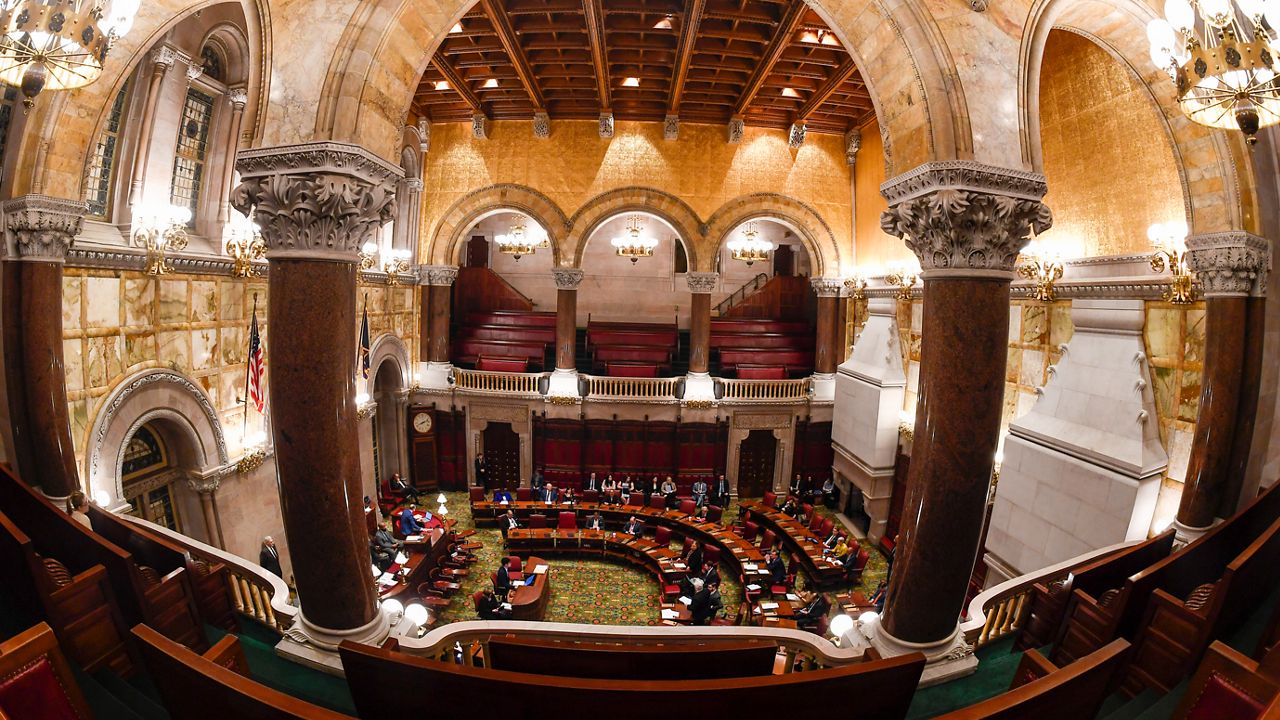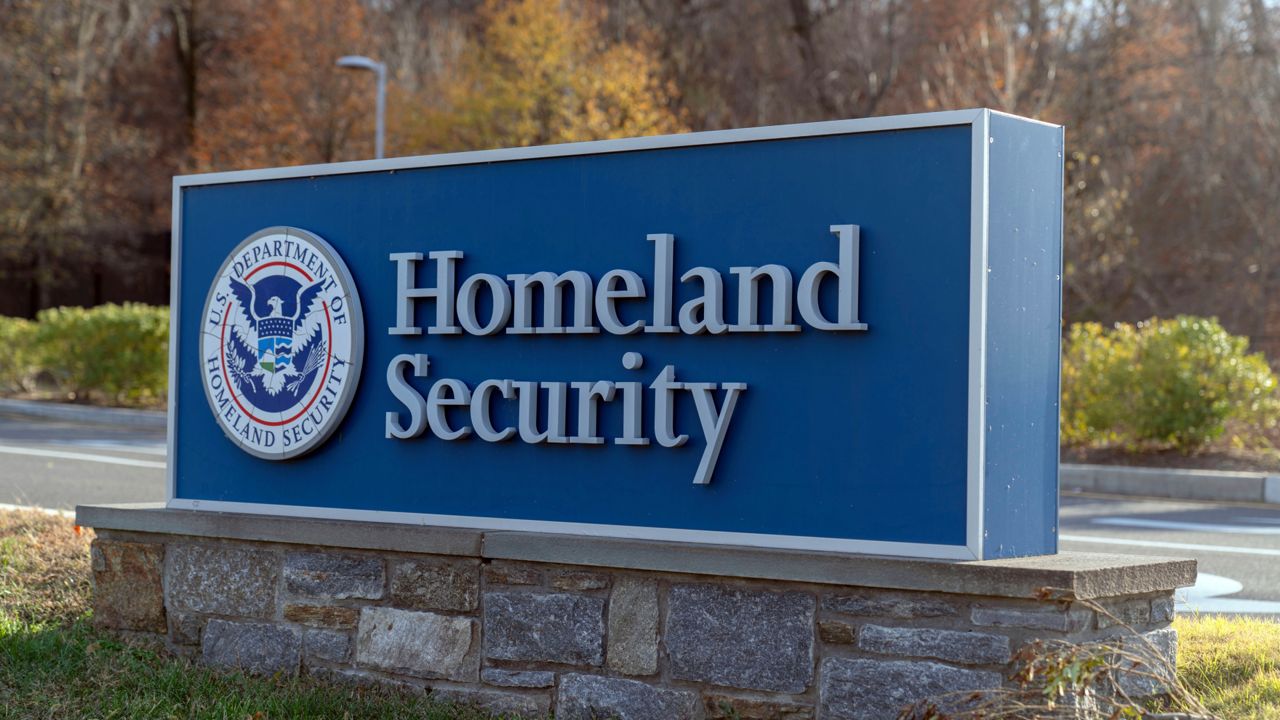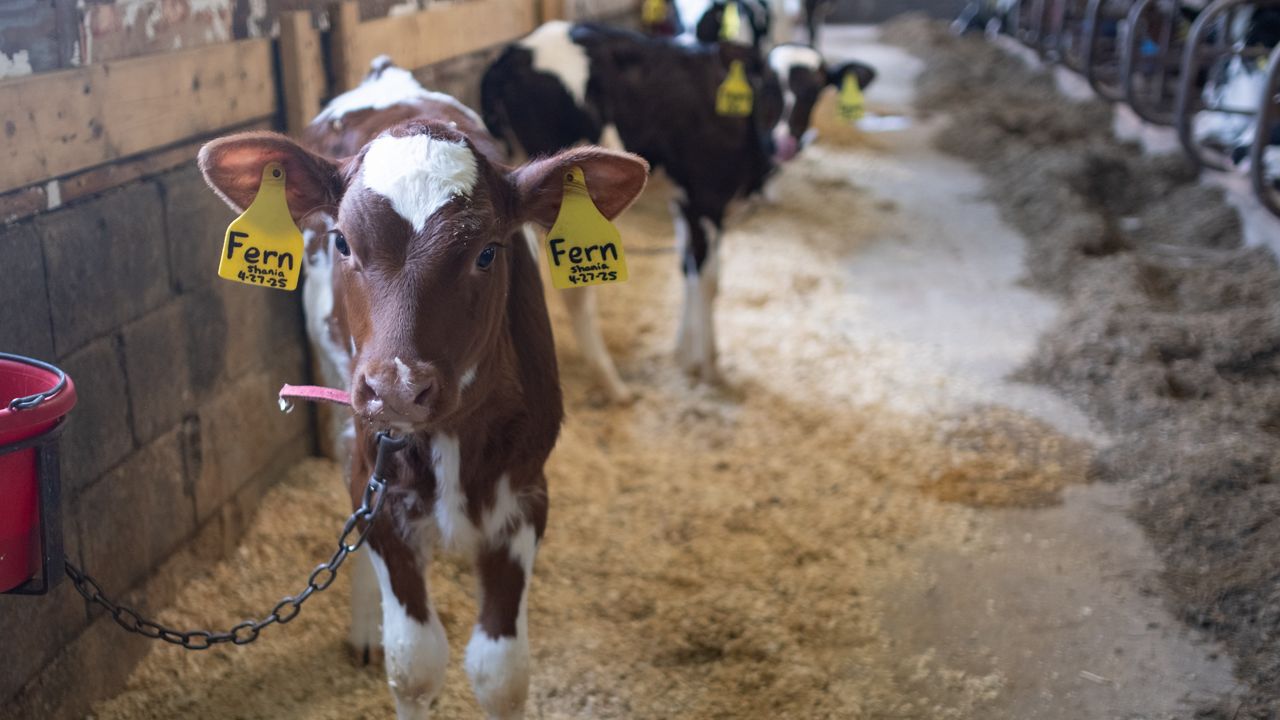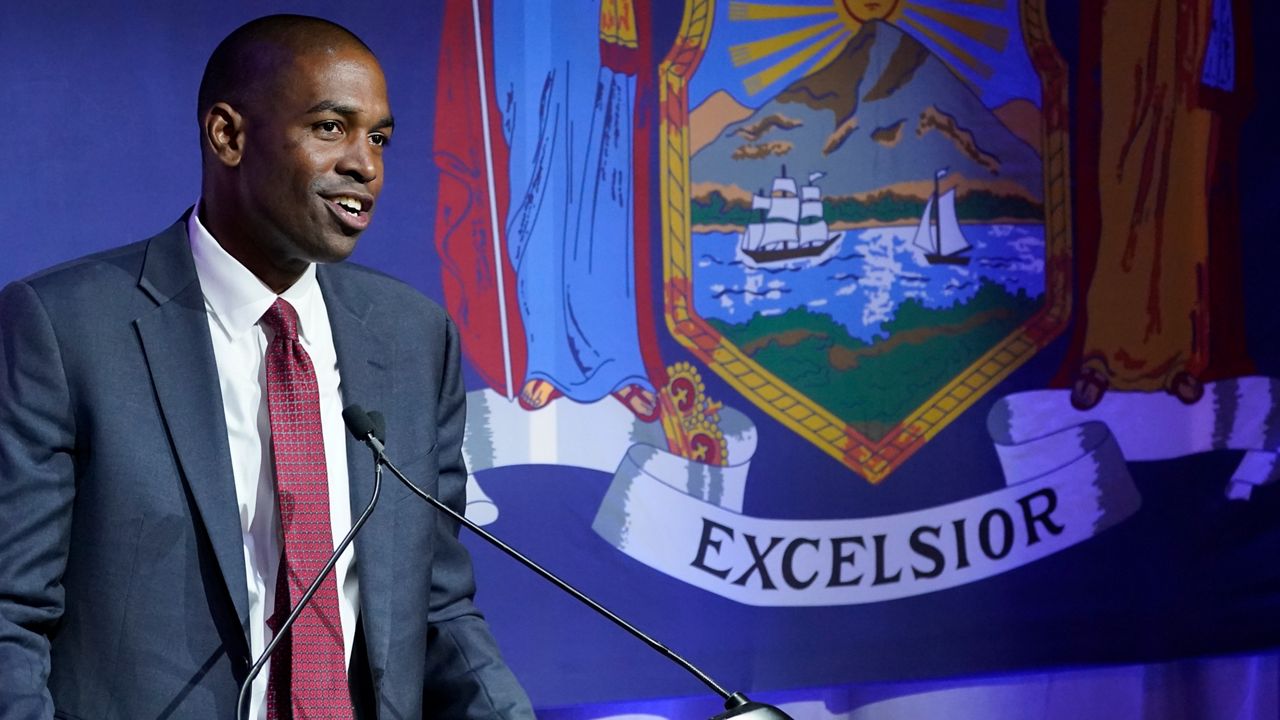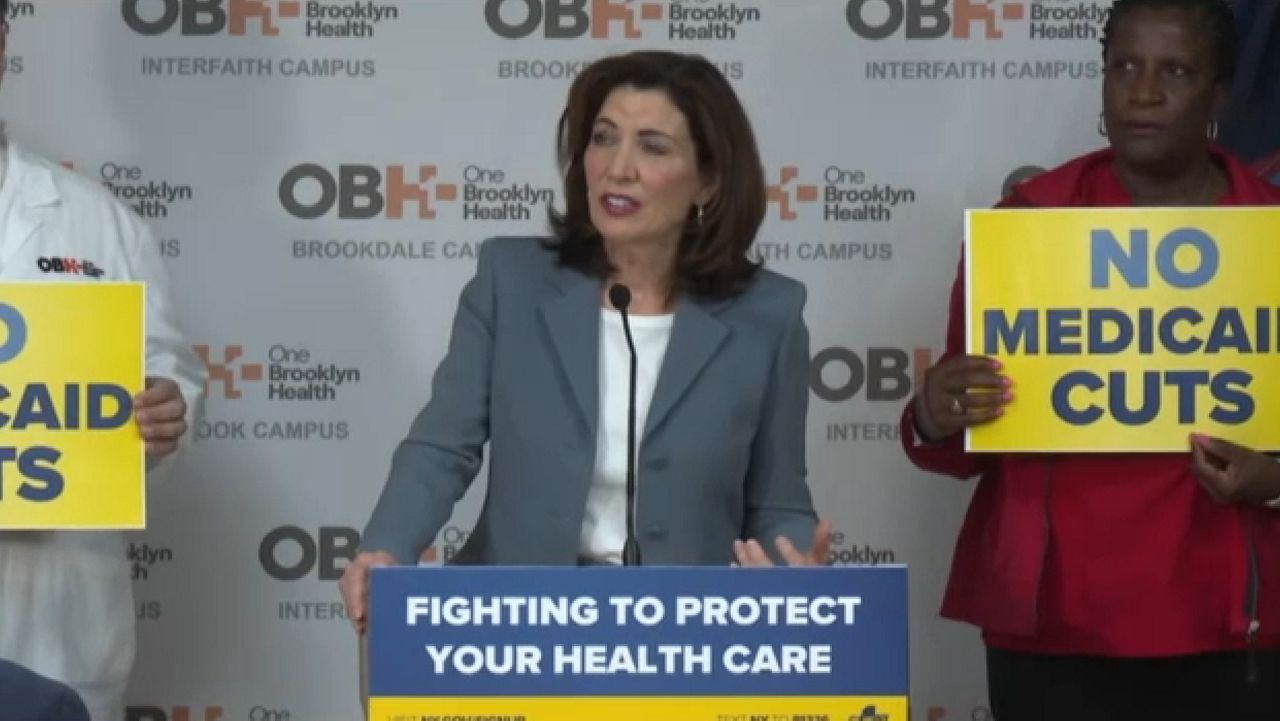Wednesday was the first day of the new legislative session in Albany. New York state lawmakers returned to get to work on legislation as they also stare down an April 1 budget deadline.
In addition to opening remarks, small talk in the hallways, and Assembly Speaker Carl Heastie and state Senate Majority Leader Andrea Stewart-Cousins being re-sworn into their posts, the battles for the upcoming session are taking shape.
“A dedicated effort to continue to make New York, which is a very expensive place, easier for people to provide for their families,” Deputy Senate Majority Leader Mike Gianaris said on the Senate floor.
Stewart-Cousins also called tackling the affordability crisis the Senate's "top priority" in her floor remarks, but said "basic freedoms," including reproductive rights, must be protected.
Gianaris told Spectrum News 1 that in the aftermath of the November election, affordability is the word you’ll hear repeatedly in the halls of the Capitol from both parties, but with a newfound urgency from Democrats as they process the results from Election Day.
“We've heard loud and clear from the public,” he said. “Things have gotten way too expensive, whether you’re talking about child care, health care, education for their kids, it’s hard to make ends meet.”
Gov. Kathy Hochul has also made affordability her theme for the upcoming session, but demonstrating the rifts that exist even among Democrats on the issue, Gianaris was less than enthusiastic about the governor’s proposal to cut inflation relief checks to New York families.
“I’d prefer an approach that helps families get by that is more permanent and longstanding,” he said. “I don’t think there’s anything wrong with it, but I don’t think it's the kind of forward looking answer we need.”
Democrats will also have to balance setting their agenda with their plans to resist President-elect Donald Trump's agenda.
“We’re just going to have to be on our toes,” Gianaris said. “We know you can wake up in the morning and a policy bomb will have been thrown that we have to react to.”
Those concerns largely center around what to do about immigration in a new Trump era, how to fight climate change with what is likely to amount to little federal support, and whether the new administration will mean less federal funding for things like health care and transportation.
This all comes as Republican lawmakers, led in the Senate by Rob Ortt, rail against state level Democratic policy that they say is the reason New York is experiencing an affordability crisis in the first place.
“It’s really expensive to fulfill your hopes and dreams in this state, and it’s because of policies that come out of this building, supported by Democrats in both houses and the governor that make it so,” he said.
One thing that will be of interest upstate is what the Legislature does with school funding.
Last year, Gov. Hochul wanted to do away with protections preventing school districts from losing funding due to population loss, known as "Save Harmless" or "Hold Harmless."
The compromise was to study the current formula's shortcomings, and it's now up to the governor and Legislature to figure out a path forward.
“Next step is to hear from the governor next week and hear her budget proposal, and we’ll react to it, but what is top of mind for all of us is to make sure every child in the state gets the education they deserve,” Gianaris said.
Cost issues stemming from the MTA’s capital plan and the impact of congestion pricing are creating additional issues, and along with them come talks of a tax hike to raise revenue. Hochul has long resisted such a move, and Assembly Speaker Carl Heastie told reporters Wednesday that it’s too early to tell.
“Usually there are very few ways to raise revenue, fees and taxes, but we're not there yet. I’m not saying we’re raising taxes to fund the MTA. I’m not prepared to say that,” he said.
Republicans, however, wasted no time coming out against even rumblings of a tax increase.
“We’re doing the congestion pricing, which was supposed to address that, now we have to do taxes too? It just proves that you can’t spend your way to affordability,” Ortt said. “If you could, we would be the most affordable state in the country.”
All this comes as the Legislature and the governor work to address the state’s climate goals, and its lagging progress, as key deadlines like the state’s electric school bus mandate loom.
Recent horrific crimes on the city’s subways have also renewed calls to look into the states involuntary commitment laws and other mental health related issues.







